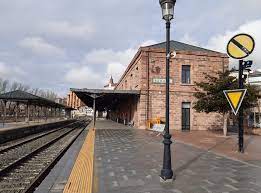Biography, by Remedios Benéitez
Ernest Hemingway (July 21, 1899 - July 2, 1961)
He was the second of six children. His father was a
doctor and his mother a music teacher. His father’s interests in history and
literature, as well as outdoorsy (fishing and hunting) became a lifestyle for
Ernest.
In 1916 he graduated for high school and began his
writing career as a reporter for The Kansas City Star. Six months later
he joined the Ambulance Corps in First Word War and worked as an ambulance driver
in the Italian front, where he was seriously wounded by a mortal shell. He was
awarded by the Silver Medal.
Back in America, he continued his writing career
working for the Toronto Star. In 1921, he became a Toronto Star
reporter in Paris. There he published his first books called Three Stories
and Three Poems and In Our Time. In Paris he met Gertrude Stein, who
introduced him into the circle that she called The Lost Generation.
During that time, he wrote several books.
Hemingway participate in the Spanish Civil War and
took part in the D-Day landings during the invasion of France in World War II.
His military experiences were emulated in For Whom the Bell Tolls and in
several other stories.
He settled near Havana, Cuba, where he wrote his best-known
work, The Old Man and the Sea (1953), for which he won a Pulitzer Price
and the Nobel Prize in Literature.
War wounds, two plane crashes, four marriages and
several affairs took their toll on Hemingway hereditary predispositions and
contributed to his declining health. He was diagnosed with bipolar disorder and
insomnia in his later years. His mental condition was exacerbated by chronic
alcoholism, diabetes and liver failure.
He committed suicide in 1961.
Analysis of Hills Like White Elephants
It was published in 1927. The story focuses on a
conversation between an American man and a young woman, described as a “girl”
at a Spanish train station in the Valley of Ebro while they are waiting for a
train to Madrid. The girl compares the nearby hills to white elephants.
While the couple drinks beer, they discuss an
“operation” that the man wants the girl to have. You can guess that they are
talking about an abortion.
Hills like White Elephants at the Wikipedia
Some more things about
Hemingway:
He never went to the University and he admired Sherwood
Anderson (we are going to read a story by him).
Rules he followed composing a story:
1.Direct treatment of the “thing”, without evasion or
cliché.
2.The use of absolutely no word that does not contribute
to the general design.
3.Fidelity to the rhythms of natural speech.
4.The natural object is always the adequate symbol.
His method follows the principle of the iceberg: “There’s
seven-eighths of it under water for every part that shows. Anything you know
you can eliminate, and it only strengthens your iceberg: it’s the part that
doesn’t show. If a writer omits something because he doesn’t know it, then
there’s a hole in the story.
QUESTIONS
What is the meaning of “white elephant”?
Why do you think the story is situated in a railway
station?
What city do you think is the station? How do you know?
What can you tell us about absinthe? And about licorice?
Describe the man.
Describe the girl. Why is she named “Jig”?
What do these symbols mean, according to your opinion?
Anís del Toro
beads curtain
river
hills
…
Do you think they’re having a casual, formal, tense, relaxed…
dialogue? Why?
What can you deduce from this sentence said by the
man: “I know a lot of people that had done it”?
Why did the man carry the bags to the other tracks?
Whose bags are these, his, hers or theirs?
In the end, are they going to Madrid together? How do
you know?
According to critics there are 4 possibilities. Which
one do you think is the most probable? Why?
1) they will have the abortion and break up
2) they will have the abortion and stay together
3) they will have the baby and break up
4) they will have the baby and stay together.
What do you think of Hemingway’s style?
Do you think this one it’s a macho or a feminist story?
Have you read anything else by Hemingway, or seen any
film based on his stories?
Delicate debate: What opinions do you have about the problem
of abortion?
